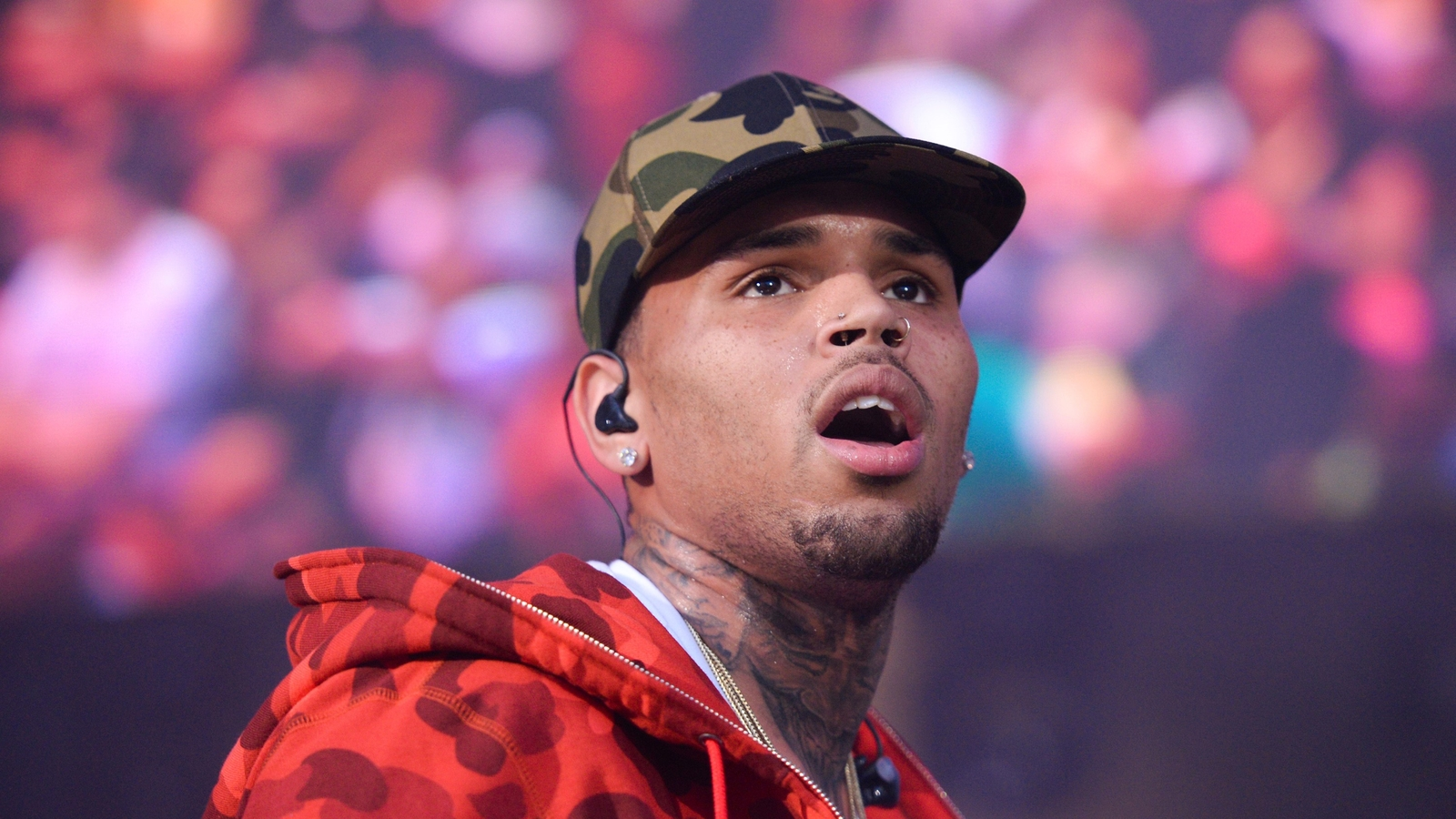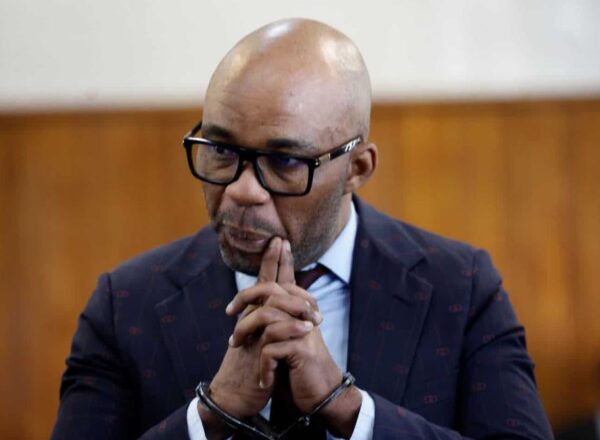
Chris Brown’s arrest has made headlines not only in the UK, where the incident occurred, but also resonated deeply across South Africa, stirring conversations about celebrity accountability and loyal fan bases. In May 2023, the music sensation was taken into custody after a violent altercation in a London nightclub, raising eyebrows regarding the extent of his fan loyalty. The media coverage surrounding Chris Brown’s arrest has sparked a significant discourse on how stars are often shielded from repercussions due to their popularity. Despite his controversial past, many South Africans still support him fervently, questioning whether fame can overshadow accountability. With social media reactions ranging from shock to dismissal, the implications of his actions beckon a broader examination of celebrity culture and fan dynamics in today’s society.
The news surrounding the arrest of the music icon Chris Brown has ignited a crucial debate on celebrity behavior and societal expectations. As details of the altercation in London emerge, it is vital to assess the role of public opinion, particularly in South Africa, where admirers continue to rally behind their favorite stars. Fans grapple with the challenge of reconciling their admiration for celebrities with the sometimes troubling actions that surface in the media. This phenomenon raises critical questions about the balance between entertainment and morality in celebrity culture. Amidst compelling discussions around media portrayals and social media reactions, the narrative of celebrity accountability remains at the forefront.
Chris Brown’s Arrest: Celebrity Accountability in the Spotlight
Chris Brown’s recent arrest in the UK has sparked widespread debate about celebrity accountability, particularly among fans in South Africa. The incident raises pressing questions about how much loyalty fans are willing to extend to their favorite artists, despite troubling behavior. In light of Brown’s long history of controversies, including allegations of violence, many are wondering whether his popularity will insulate him from accountability. This situation challenges fans to confront the balance between admiration for an artist’s work and the moral implications of their actions.
As social media buzzes with opinions, South African fans exhibit a complex interplay of loyalty and disillusionment. While some condemn Chris Brown’s actions, others argue that his music and performances, like those during his recent shows at FNB Stadium, should not be overshadowed by his legal troubles. This duality illustrates the struggle between recognizing an artist’s value and holding them accountable for their behavior, a dilemma prevalent in celebrity culture that transcends borders.
Media Coverage and Its Impact on Celebrity Perception
The role of media in shaping public perception of celebrity incidents cannot be understated, particularly in the case of Chris Brown. While international outlets spotlight the severity of his arrest, South African media often downplays the gravity of such events, focusing instead on the artist’s popularity and upcoming tours. This trend leads to a selective reporting style that can distort public perception about the need for accountability in the entertainment industry, creating a dangerous precedent for other celebrities.
In South Africa, the media’s tendency to frame headlines around the entertainment value of Chris Brown’s actions rather than their implications serves to normalize violence and misconduct among idols. Instead of tackling serious issues like the implications of his arrest, discussions often devolve into questions about upcoming performances and fan experiences. Consequently, this poses a challenge for society as it grapples with the need for empowering responsible conversations regarding celebrity behaviors and their consequences.
Fan Loyalty and the Complexity of Celebrity Culture
Fan loyalty often complicates the narrative surrounding celebrities like Chris Brown, as fans struggle to reconcile their love for the artist with the uncomfortable truths of their actions. In South Africa, numerous examples exist where fans continue to support public figures, regardless of serious allegations. This emotional attachment can cloud judgment, leading to an environment where accountability is overshadowed by admiration for the celebrity’s talent and contributions to the music industry.
The phenomenon of unwavering fan loyalty raises important questions about the nature of celebrity culture in South Africa. It highlights the contradictions inherent in how fans perceive their idols: on one hand, they celebrate their success and artistry, while on the other, they may turn a blind eye to ethical concerns, which could set a dangerous precedent. As Chris Brown faces the consequences of his actions, it becomes clear that these societal dynamics require critical reflection and conversation about the responsibility that comes with fame.
The Responses of South African Social Media to Celebrity News
The South African social media landscape has responded to Chris Brown’s arrest with a mixture of surprise, apathy, and staunch defense of the artist. While many expressed shock at the news, there is also a significant portion of fans rallying behind him, showcasing the complexities of celebrity fandom in a rapidly evolving digital space. This reaction underscores how social media facilitates diverse perspectives, offering both criticism and support simultaneously.
Interestingly, the discourse surrounding Chris Brown’s arrest is reflective of broader themes within South African celebrity culture. Many social media users have intertwined their commentary with discussions on other celebrities who have faced scrutiny, reinforcing a sense of community among fans. As the conversation shifts from shock to defense, it highlights the intricate connections between celebrity actions, fan loyalty, and the influence of social media on public discourse.
The Impact of Chris Brown’s Legal Issues on His Career Future
Chris Brown’s arrest raises critical questions about the future of his career amidst his ongoing legal issues. In South Africa, discussions about whether his career can withstand this setback seem divided. Some fans believe that his established brand will enable him to bounce back, maintaining a strong fan base that continues to support him despite facing legal troubles. This sentiment speaks volumes about the provisional nature of celebrity reputations and the complexities surrounding the concept of accountability.
Meanwhile, it’s essential to consider the patterns observed in the careers of other South African celebrities who have faced controversies. Similar to Chris Brown, figures like Jub Jub and the late AKA have experienced public backlash yet managed to retain popularity among fans. The resilience shown by these artists amidst crises offers a blueprint for navigating controversies, emphasizing the need for a conversation about how society deals with the moral implications of celebrity behavior.
Examining the Cycle of Celebrity Controversies
The cycle of celebrity controversies often brings to light the societal norms that dictate public reactions to misbehavior among famous individuals. Chris Brown’s arrest serves as yet another example of this cyclical nature, where fans and media both grapple with how to process the artist’s actions. In South Africa, the tendency for celebrities to evade serious consequences raises concerns about a culture that may prioritize fame over accountability.
Public attitudes toward Chris Brown’s incidents reveal a pattern where accountability is continuously undermined by the allure of celebrity culture. Fans may cheer on their idols, only to be presented with a harsh reality when allegations surface. The question remains – how can society change this cycle to promote a greater sense of accountability among its celebrities, ensuring that fame does not act as a shield against misconduct?
The Role of Public Opinion in Celebrity Accountability
Public opinion plays a critical role in shaping the accountability narratives surrounding celebrities like Chris Brown. With every new news cycle comes the potential for public perception to either bolster or undermine an artist’s reputation. In the case of Chris Brown’s arrest, reactions within South African communities highlight the complex relationship between media portrayal, fan loyalty, and societal expectations of accountability.
As fans continue to rally behind Brown, it raises pivotal questions about the efficacy of public opinion in fostering accountability. Are fans willing to overlook serious allegations in exchange for the entertainment and joy derived from the artist’s work? This delicate balance suggests that the road to accountability is fraught with challenges, as public opinion can easily vacillate based on the celebrity’s popularity and the emotional investment fans have in their careers.
The Ethical Considerations of Supporting Controversial Artists
Supporting artists like Chris Brown, who have faced serious allegations, brings forth ethical considerations that fans must navigate. South African discussions about the implications of his arrest shed light on important moral dilemmas. Should fans continue to celebrate the work of a musician accused of violence, or do they have a moral responsibility to re-evaluate their support in light of his actions?
This ethical debate resonates deeply within the South African context, where celebrity culture is often intertwined with community identity. Fans wrestle with their loyalty while confronting the uncomfortable truths of their idols’ behavior. The broader conversation about artistic merit versus personal conduct illustrates the challenges of reconciling admiration with accountability in a world where fame can influence perceptions of right and wrong.
Conclusion: Reflections on Chris Brown and Celebrity Accountability
In conclusion, Chris Brown’s arrest serves as a poignant reminder of the many layers involved in discussions about celebrity accountability. The reactions from South African media and fans illustrate a tension between admiration for the artist and the need to address serious ethical issues. As conversations evolve around his actions, society must consider the implications for future celebrity culture and the responsibility that comes with public adoration.
Ultimately, Chris Brown’s circumstances invite a larger discourse on how society navigates the complex terrain of fame, loyalty, and accountability. Moving forward, it is crucial for fans, media, and the public alike to engage in meaningful discussions that challenge the status quo, fostering an environment where accountability is prioritized alongside celebration of talent.
Frequently Asked Questions
What led to Chris Brown’s arrest in the UK in 2023?
Chris Brown’s arrest in the UK occurred following an incident at Tape nightclub in February 2023, where he allegedly assaulted music producer Abe Diaw with a Tequila bottle and caused severe injuries.
How did South African social media respond to Chris Brown’s arrest?
South African social media reactions to Chris Brown’s arrest were mixed, with some fans expressing shock while others defended the artist, highlighting the complexities of celebrity accountability.
What are the implications of Chris Brown’s arrest for celebrity accountability in South Africa?
Chris Brown’s arrest raises significant questions about celebrity accountability in South Africa, particularly regarding how fan loyalty can complicate moral judgments about their favorite stars and their actions.
How is the media coverage of Chris Brown’s arrest different in South Africa compared to international outlets?
Media coverage of Chris Brown’s arrest in South Africa often downplays the seriousness, focusing more on the implications for his tours and image, while international outlets label the incident as ‘serious’ and ‘violent’.
Does fan loyalty affect perceptions of Chris Brown’s arrest and accountability?
Yes, fan loyalty can significantly affect perceptions of Chris Brown’s arrest, as strong emotional attachments to celebrities may lead fans to overlook or excuse harmful behavior despite serious allegations.
What parallels can be drawn between Chris Brown’s situation and other South African celebrities?
Chris Brown’s situation parallels that of other South African celebrities, such as Jub Jub and the late AKA, who have faced public scrutiny yet maintained fan loyalty despite serious accusations, illustrating a pattern of leniency in public opinion.
What questions does Chris Brown’s arrest raise about celebrity culture in South Africa?
Chris Brown’s arrest prompts critical questions about celebrity culture in South Africa, particularly regarding the balance between fame and accountability, and how the public often excuses negative behavior due to the artist’s popularity.
| Point | Details |
|---|---|
| Chris Brown’s Arrest | Arrested in the UK for allegedly assaulting music producer Abe Diaw in a nightclub in February 2023. |
| Fan Loyalty | South African fans show immense loyalty despite controversial history; reactions to his arrest vary. |
| Media Coverage | International media label the incident serious, while South African media focuses more on Brown’s tours and performances. |
| Local Celebrity Context | Similar to Jub Jub and late AKA’s cases where public opinion often overlooks misconduct due to fame. |
| Public’s Emotional Attachment | Fans’ emotional connections to celebrities can cloud judgments on accountability and morality. |
Summary
Chris Brown’s arrest has sparked significant discussions around the implications of fan loyalty and the media’s portrayal of celebrity behavior. As the details surrounding his violent actions emerge, many in South Africa contemplate the complex relationship between fame and accountability. This case serves as a critical reminder of how easily some fans may overlook serious issues in favor of their attachment to the artist.




